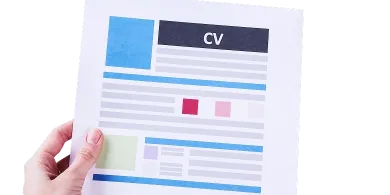Table of contents

Are you looking for the best websites to find a job to take care of your bills and lead a comfortable life? If so, you have landed at the right place. Since finding an appropriate job is pretty difficult these days, we present you with the finest sources in the list below so that you can pick your ideal job comfortably without facing any hurdles.
However, before applying for any of the jobs available on these websites, ensure to have a proper creative resume in place. Your resume has to be effective enough and showcase your talents so that your potential clients have no other way than to hire you to do the job. In most cases, you may not be even considered if you don’t have a promising resume.
Resume Writing Lab wants to help you in the best possible way so that you can utilize your talent at the appropriate place and at the perfect time. Now without any further explanation, let’s take a look at the best websites to find a job easily.
ZipRecruiter is undoubtedly a top-notch site for job hunters. They offer a powerful job search engine that can help you find different job openings in the residential as well as the international spheres. ZipRecruiter can help you select from over 9 Million jobs in several clicks.
LinkedIn is a popular social networking site created mainly for business engagement from both ends. This way you can build relationships with people whom you rely upon. The website allows you to create a profile with all of your essential details which lay emphasis on your knowledge, skills, and experiences.
The basic membership is totally free; however, you need to apply to LinkedIn profile writer and spend a few bucks for a premium subscription in case you require greater enhancement. LinkedIn was launched in 2003 and now has more than 300 million members spread across the globe.

Indeed is very often referred to as the number one place to find jobs from a host of a source, such as job boards, companies, classifieds, newspapers, and other important websites among others. You can upload your CV as a user to get a personalized URL that can be shown to your potential employers. In addition, you can find some great discussion forms and job tips for landing your dream job.

SimplyHired is a leading job search engine on the internet with more than six million works. You can achieve an additional outcome through employers’ sites and job boards too. You can also make full use of the advanced search tool for sorting jobs by skill and education. They also have a blog with a company directory, tips for getting hired, and a search based on your preferred location.
WantaNewCareer has various useful apps and sources for job applicants. You can easily post resumes, and jobs, review the backgrounds of different companies and get information on salaries besides advice for improving your career.

Glassdoor contains company reviews from present and former employees, company info, ratings, CEO acceptance rating, salaries, and rivals among others. You can seek and share real-time reviews and salary facts about jobs from the right employers. You can also get info about your desired companies where you’d like to work. Glassdoor allows you to make a comparison between local salaries with the national average for almost all jobs.
Dice is the perfect place for tech job seekers without any doubt. You can find jobs based on title, company, skill, employment location, and option. Following your registration, you can submit your CV and cover letters. Crucial information on career advice and news about different job openings can easily be found at Dice.
Snagajob is a free, easy, and accessible website for job seekers of all kinds. This is an excellent platform that offers hourly workers and hourly employers the necessary tools to make quick connections.

Jooble is a job search platform that can provide new information, ads, and positions every single hour! It has full-time, part-time, and on-demand options for both job seekers and hirers. This platform can connect you with hiring managers as well as help your company find new professionals!
Final Thoughts
These are the top 7 websites to find a job on the internet. Stop wasting your time by scouring the web to find the best job this year. Just go ahead and try any of the sites mentioned above and share your experience with us.